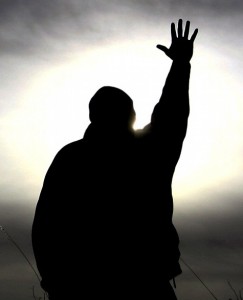 Sometimes, I look back on the survival of my personal faith within the crucible of a liberal arts college education as nothing less than a miracle.
Sometimes, I look back on the survival of my personal faith within the crucible of a liberal arts college education as nothing less than a miracle.
Like many preachers kids, I came out of a sheltered, fundamentalist Christian (and Pentecostal at that) upbringing unprepared, spiritually and intellectually, for the maelstrom of questioning that awaited me on campus.
So, it may sound strange when I say that I owe debts of gratitude to atheists, agnostics and one post-modern mystic. That requires some elaboration, doesn’t it? Well, I’ll try.
Naturally, I ran into the straightforward Darwinian scientists who taught me the required biology and chemistry courses, atheists all. An unexpected counterbalance, however, came with an agnostic, painfully exact and honest anthropologist who tore holes in the orthodoxy of evolutionary hypotheses, even while admitting he had no substitutes to explain human origins.
Eventually, I moved on to my initial major, Psychology, and immediately ran into Sigmund Freud. Even then, Freud’s theories were under withering attack as the profession moved more toward B.F. Skinner’s behaviorism and the perceived triumph of nurture over nature.
But God, indeed faith in any form, found no welcome in either of those camps.
Then, I discovered Carl Jung.
It was more than learning Jung also was a “PK,” the son of a Lutheran minister in a family studded with clergymen. It was his brilliant intellect, his courage (to me, at least) in acknowledging that faith in a Higher Power was integral to makeup human beings — and that it was more than a projection of fear, need or imagination; that it had substance.
In his autobiography, Memories, Dreams, Reflections, Yung concluded with this:
“Yet there is so much that fills me: plants, animals, clouds, day and night, and the eternal in man. The more uncertain I have felt about myself, the more there has grown up in me a feeling of kinship with all things. In fact it seems to me as if that alienation which so long separated me from the world has become transferred into my own inner world, and has revealed to me an unexpected unfamiliarity with myself.”
Now, Jung was not what you’d call a Christian, or at least one that would fit most believers’ definition. He was interested, however, in the metaphysics of spiritual experience – sometimes to wacky extremes — through all faith systems, eventually developing the concept of a “collective unconscious” that, he maintained, gave birth to such experiences.
Of course, I didn’t buy all of what Jung hypothesized, any more than I accepted Freud’s obsession with sex as being at the core of all neuroses. And, my anthropology professor had instilled skepticism of scientist “truths” that made me question any dogma, secular as well as social and religious.
For me, Jung’s observations, even his flights of imaginative explanation, provided no answers, per se. However, they did confirm what I was feeling within myself — that resilient faith that survived, like a lump of beaten metal in a furnace.
And, I went from there, re-evaluating all I had been taught about God and existence and the human soul. Some end that journey in disbelief. My faith grew, and continues to grow.
I embraced God and his son, Jesus, with newfound awe — even as I found the religion of my childhood, and indeed faith “systems” in general, to be well-intentioned and yet ultimately anemic attempts to define and confine the Divine within a manmade framework.
Finite minds trying to explain the Infinite. Obsessive human brains unable to accept basic precepts and truths without building fortresses of rules and rituals around them.
I’ll let Jung have the last word (this from his book, The Undiscovered Self):
“The seat of faith, however, is not consciousness but spontaneous religious experience, which brings the individual’s faith into immediate relation with God. Here we must ask: Have I any religious experience and immediate relation to God, and hence that certainty which will keep me, as an individual, from dissolving in the crowd?”

